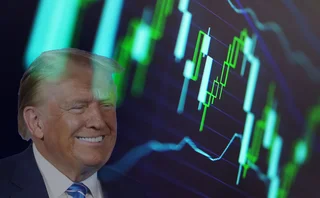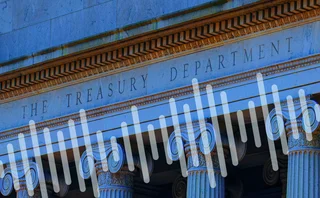
On Russia, finance needs to find its moral compass
The looming risk of big write-offs should prompt investor rethink
The unprovoked invasion of a sovereign state by Russia has affected many people in many ways. With over three million Ukrainian refugees having now fled their homes in search of safety, it feels somehow empty to write about banks’ exposure to Russia or market interventions by the Russian central bank.
Not that these things don’t matter. Au contraire, they do. And the market reaction to a raft of sanctions from the US, the European Union, the UK and other countries shows just how the global economy and the financial markets are intertwined.
The three European lenders most exposed to Russia going into the war were, perhaps unsurprisingly, Societe Generale, Raiffeisen Bank International (RBI) and UniCredit.
At the time of writing, the banks’ shares are down 23%, 35% and 29%, respectively, since February 24. Not a good look.
While these banks stand out from the crowd, lenders in most western countries also had significant Russian exposures, according to the latest available figures. The same countries now united towards making Russia a financial markets pariah, had billions of US dollars in claims vis-à-vis Russian banks.
Needless to say, banks are not the only market players with links to Russia and its state-controlled institutions.
The largest state-backed pension funds around the globe, from Norway to Japan, from Europe and the US, also reported billions in exposure to the country. Digging into their financial disclosures reveals large exposures to Russia’s two largest banks – Sberbank and VTB Bank – and its main energy companies, Gazprom and Rosneft. All of which have now been sanctioned.
Like it or not, by buying into Russia’s top names, financial institutions played a role in contributing to beefing up Moscow’s war chest.
Granted, there’s an argument to be made about investing in a country such as Russia in order to dig it out from the mud of its past and launch it into a brighter future. The infamous ‘Russian reset’ doctrine deployed by the Obama administration in 2009 was partially based on this thinking, but unravelled after just over three years.
But here’s the thing. Even before last month’s invasion, the writing was on the wall that Putin’s strategic aims lacked any regard for human life, at home or abroad. After all, a good chunk of the currently proscribed companies and personnel made their first appearance on sanction lists after the annexation of Crimea in 2014.
The latest round of restrictive measures has just highlighted the extent of the connections with western institutions. Some banks and funds may now find themselves stuck with a bunch of Russian assets and exposures, and nowhere to offload them. The risk of big write-offs is looming ever closer – cue the world’s smallest violin.
Only users who have a paid subscription or are part of a corporate subscription are able to print or copy content.
To access these options, along with all other subscription benefits, please contact info@risk.net or view our subscription options here: http://subscriptions.risk.net/subscribe
You are currently unable to print this content. Please contact info@risk.net to find out more.
You are currently unable to copy this content. Please contact info@risk.net to find out more.
Copyright Infopro Digital Limited. All rights reserved.
As outlined in our terms and conditions, https://www.infopro-digital.com/terms-and-conditions/subscriptions/ (point 2.4), printing is limited to a single copy.
If you would like to purchase additional rights please email info@risk.net
Copyright Infopro Digital Limited. All rights reserved.
You may share this content using our article tools. As outlined in our terms and conditions, https://www.infopro-digital.com/terms-and-conditions/subscriptions/ (clause 2.4), an Authorised User may only make one copy of the materials for their own personal use. You must also comply with the restrictions in clause 2.5.
If you would like to purchase additional rights please email info@risk.net
More on Our take
Passive investing and Big Tech: an ill-fated match
Tracker funds are choking out active managers, leading to hyped valuations for a dangerously small number of equities
Sticky fears about sticky inflation
Risk.net survey finds investors are not yet ready to declare victory on inflation – with good reason
Why a Trumpian world could be good for trend
Trump’s U-turns have hit returns, but the forces that put him in office could revive the investment strategy
Roll over, SRTs: Regulators fret over capital relief trades
Banks will have to balance the appeal of capital relief against the risk of a market shutdown
Thrown under the Omnibus: will GAR survive EU’s green rollback?
Green finance metric in limbo after suspension sees 90% of top EU banks forgo reporting
Has the Collins Amendment reached its endgame?
Scott Bessent wants to end the dual capital stack. How that would work in practice remains unclear
Talking Heads 2025: Who will buy Trump’s big, beautiful bonds?
Treasury issuance and hedge fund risks vex macro heavyweights
The AI explainability barrier is lowering
Improved and accessible tools can quickly make sense of complex models








